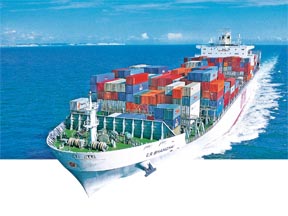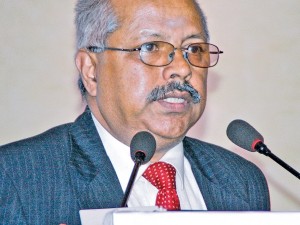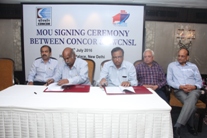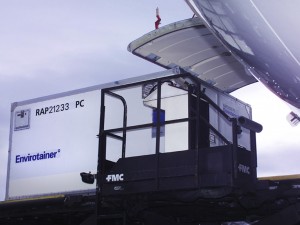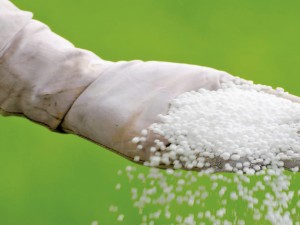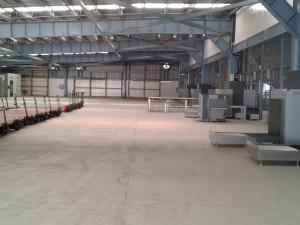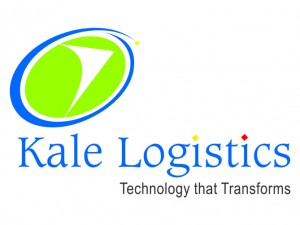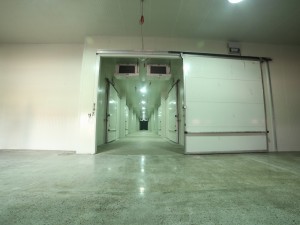“Logistics industry has huge scope of becoming more effective which signals opportunities for many entrepreneurs, multiple investments. For the infrastructure to improve we need some inorganic pushes for this industry. Although the government continues to focus on building right quality infrastructure for this industry, private logistics players have to contribute to this journey. Imagining a world of seamless logistics and then jointly working with the government to get this implemented is important. As we continue to see this trend on logistics companies making inroads into various spaces within logistics, more and more consolidation of this space would happen. Logistics is all about optimised networks for transportation and warehousing and scale indeed plays a critical role in bringing optimisation into play. The entire eco-system of logistics is very elementary in our country. The logistics start-ups have been trying to solve these issues from a very fresh perspective,” says, Rajesh Yabaji, Co-Founder, BlackBuck while commenting on the start-ups in the logistics sector.
Read More »India and US to enhance cooperation in maritime sector
India and the United States have agreed to deepen the scope of cooperation in the maritime sector with the American ports evincing keen interest in comprehensive port-led development, especially the ambitious Sagarmala programme. The 150 projects under this programme have the potential to mobilise $50-60 billion of infrastructure investment and another US$ 100 billion of investment for promoting industrial growth. The Shipping Minister outlined the regulatory assistance which the Narendra Modi government has offered to the maritime sector, including grant of infrastructure status to shipyards, supportive domestic eligibility criteria for Indian shipyards for assured ship repair orders, service tax exemption on ship repair service for foreign going vessels, setting up of ship repairing business immediately without any approval from director generals.
Read More »Transparent process with SWIFT to reduce transaction cost
“The process and the requirement of imports are now transparent; therefore the importers would call for the authentic documents from the supplier to fill up the various requirements from the Single Window point of view. This also enables the industry to reduce their transaction cost once the details are given as per the requirement of SWIFT and no further queries raised on the PGA front. This also helps the Customs to view the import more rationally and clear quickly,” says, S Ramakrishna, CMD, Balaji Mariline.
Read More »CONCOR and CWCNSL sign MoU to facilitate trade
Container Corporation of India (CONCOR) and Continental Warehousing Corporation (Nhava Sheva) (CWCNSL) have signed an agreement where CONCOR rakes have been provided exclusive access at the three rail connected terminals of CWCNSL at Panipat, Lakhwada and Thimmapur. The synergies between the companies are likely to give a much needed boost to the movement of both exim and domestic containerised cargo by rail in the catchment areas of these three terminals. With this agreement, trade will derive huge benefit from reduced first and last mile connectivity costs as well as from 24×7 access to these terminals. Moreover, the transaction cost of imports and exports is likely to come down once the operations start.
Read More »Envirotainer Station at Celebi Delhi Cargo Terminal
Celebi Delhi Cargo Terminal announced the commencement of Envirotainer Stocking Station at the terminal itself. The initiative has been taken to benefit the trade community and extend easy access of Envirotainer cool containers to the customers at the Delhi station. The booking of the containers will be done as per the existing process with Envirotainer. “As a part of our continuous endeavour to improve our cold chain infrastructure in the cargo terminal, we have entered into a collaboration with Envirotainer, who will stock certain number of containers at any point of time in the Delhi facility which will be readily available for usage for the customers with minimal lead time,” informs Ramesh Mamidala, CEO, Celebi Delhi Cargo Terminal Management India.
Read More »Freight rates for fertilizers approved
To ensure timely and adequate availability of fertilizers to farmers at affordable prices, Department of Fertilizers has approved the freight rates for the direct road movement of fertilizers up to 500 km from plant/port to block level, as recommended by the Tariff Commission. The decision will ensure availability of urea in remote areas, while keeping the cost under control. It will be one of the major tool to maintain the demand and supply uniformly all over the country up to the block level and will benefit farmers during the peak demand season. Fertilizer companies will not be allowed to do indirect routing of fertilizers which will save subsidy and promote efficient transportation of fertilizers. The district wise normative road freight rates have been computed in scientific manner in line with the policy. Freight for Urea has been always driven by considerations of serving the farming population at large including those in remote and hilly areas. The intention of the government had never been to save subsidy by paying lower than the actual expenditure on freight. Uncertainty of freight subsidy, on the other hand, can disrupt supply and create scarcity amidst plenty. In this, distribution and movement of urea is as important as its manufacture if not more.
Read More »Pushing Road Freight
The report is based on the joint survey of road freight transportation along 28 key routes in India. The aim of the study is to explore new ways to increase the operational efficiency of freight transport by road. This study, henceforth referred to as the 2014-15 survey, was commissioned by TCI to assess the operational efficiency of freight transportation by road in India. This is a follow-up study of the earlier studies, also commissioned by TCI, in 2008-09 and 2011-12, henceforth referred to as the 2008-09 survey and 2011-12 survey, respectively. The other objective was to make an assessment of the operational efficiency of freight transportation by road, and suggest recommendations. The focus of the 2008- 09 survey was on a detailed analysis of the trucking industry and a comparison of roads and railways in terms of freight transportation. As on March 31, 2013, India’s total road length network was 5.23 million km and road density was 1.59 km/sq km. However, the length of national highways/expressways was a meagre 100,087.08 km, or about 2 per cent of the total road length network, even as they carried 40 per cent of the road traffic. Roads and railways carried about 65 and 30 per cent, respectively, of the country’s total freight volume. The rest carried by waterways and airways. In 2011-12, the contribution of the transport sector to India’s GDP was 6.5 per cent, out of which roads and railways accounted for 4.8 and 1 per cent, respectively. Road freight volumes are expected to increase from 1315 BTKM in 2012-13 to 1553 BTKM in 2014-15. However, development of new roads has not been able to keep pace with increasing freight volumes and …
Read More »Mumbai gets exclusive cargo terminal
Mumbai International Airport Limited (MIAL) opened a new domestic cargo Common User Terminal (CUT) in Mumbai near the Western Express Highway in Vile Parle this June, which has been outsourced to Concor Air Ltd (CAL) on a build-operate-transfer basis. CAL is a new company formed specially for air cargo facilities and is a 100 per cent subsidiary of Concor. According to Kamal Jain, Chief General Manager, Concor, the new terminal will also provide warehousing facilities to clients. “We have entered into a concessional agreement with MIAL for this. This new terminal has the capacity to handle 300,000 metric tonnes of cargo annually and is built on an area of 60,000 square feet. It offers state-of-the-art facilities including an online payment facility. We already have airlines like Indigo, SpiceJet, GoAir, Vistara and Jet Airways as our clients. After Mumbai, we are looking to open similar terminals in other cities too.” The cargo terminal is an ‘elevated terminal structure’ where all arriving domestic cargo is managed from the basement level while departing cargo is handled at the upper level. Air India and Blue Dart handle their own domestic cargo operations at their own terminals. Manoj Singh, Vice President, MIAL, said, “This project was on for three years and it’s the biggest facility that caters to the Western region. It can also handle hazardous goods. Freight forwarders have the option to have an office here. The Domestic Air Cargo Agents Association of India already has an office here. It became necessary for this region to have an air cargo terminal of this scale because of the increased domestic cargo business and rise in e-commerce. We are expecting an annual growth of seven per …
Read More »CODEX system at VOC Port goes live
Kale Logistics Solutions announced the formal Go Live of CODEX–Container Digital Exchange—after a three-month successful pilot run. It is designed to automate the container movement at Tuticorin Port and reduce the container dwell times considerably. It is an EDI-based electronic platform through which communication, information exchange, connectivity and electronic processing of key business transactions/operations can be facilitated between all container stake-holders at the port and its related logistics value chain.
Read More »Temperature controlled warehousing facility near Delhi
Gati Kausar announced the launch of its first temperature controlled warehousing facility in the outskirts of Gurgaon on NH 8. Spread over four acres with capacity of more than 5,000 pallets, it has multiple chambers that cater to temperature requirements ranging from -25 to +25 degrees C. This facility will serve the needs of varied industry sectors including dairy, pharmaceutical, frozen foods, quick service restaurants, ice creams, confectioneries and fruits and vegetables.
Read More » Cargo Breaking News
Cargo Breaking News

